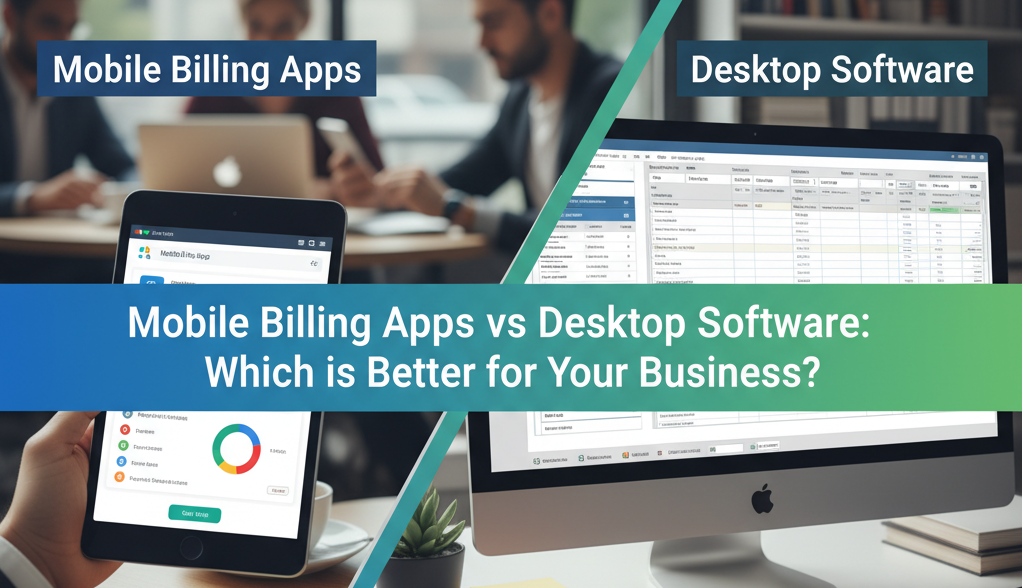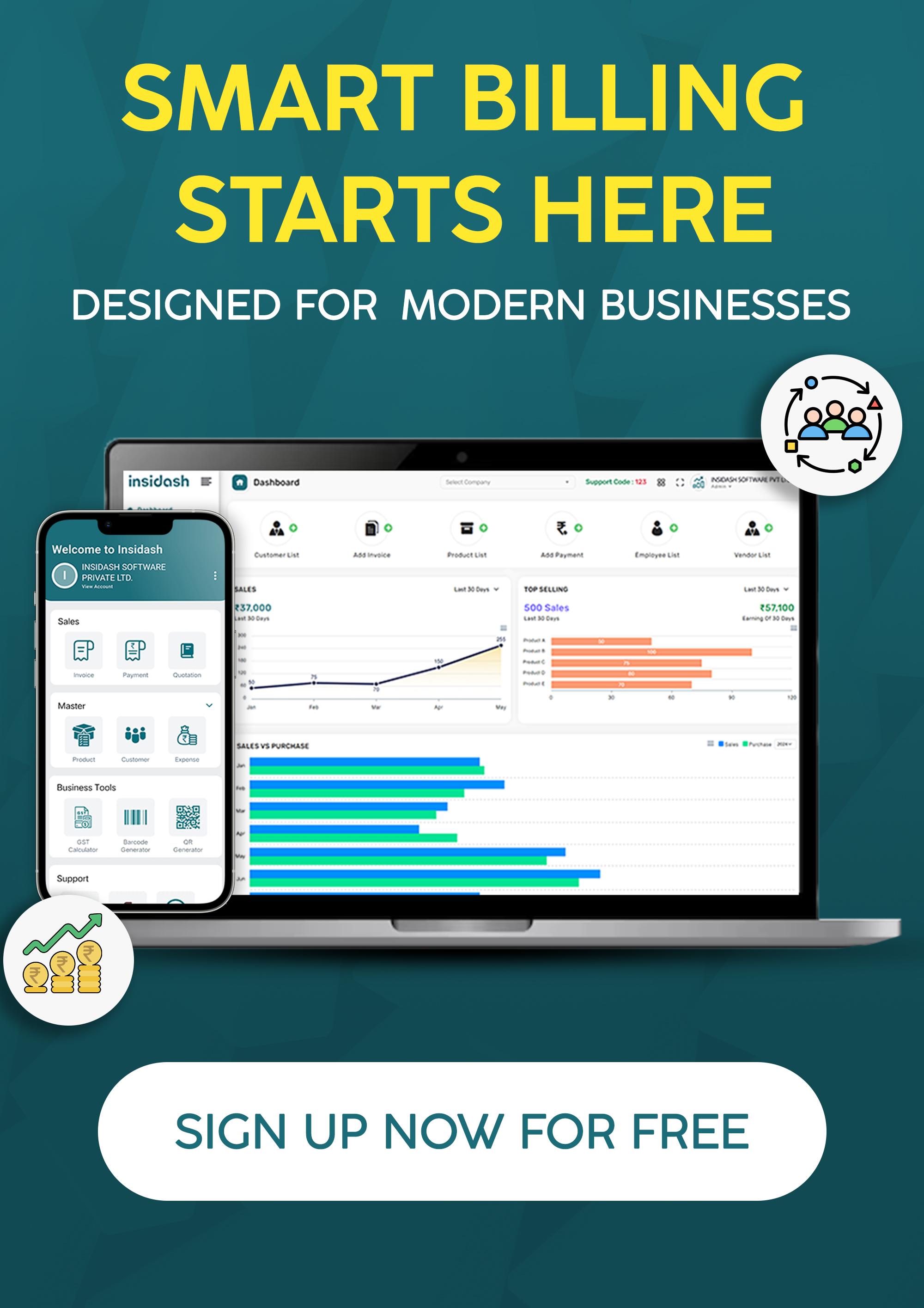Table of Contents1. Introduction 2. Overview of Mobile Billing Apps 3. Overview of Desktop Billing Software 4. Comparison: Mobile vs. Desktop 5. Conclusion |
|
Introduction
Billing is one of the most important aspects of running a successful business. From generating invoices to tracking payments and maintaining tax records efficient billing tools help in saving time and reducing errors. Today, businesses have two main choices: mobile billing apps or desktop billing software.
This decision is not a small one. Mobile apps provide flexibility and convenience while desktop systems offer stability and advanced offline billing software features. The option you choose will depend on your business size, type and growth plans.
In this blog, we’ll explore both options, look at their features and provide a simple comparison to help you compare billing software for business and make the right decision.
Overview of Mobile Billing Apps
In today’s fast-moving world, more businesses are shifting toward mobile solutions. A mobile billing app allows you to create invoices, send payment reminders and manage taxes directly from your smartphone. These apps are ideal for people who work on the go and don’t want to be tied to a computer.
Features of Mobile Billing Apps:
-
• Quick invoice generation and sharing via email or WhatsApp
-
• Cloud storage and real-time sync across devices
-
• Notifications for due or late payments
-
• Simple dashboards to track cash flow
-
• Some apps are GST-compliant billing apps which means they automatically add GST and generate reports
Overview of Desktop Billing Software
Desktop billing software is traditional software installed on a computer. Even in the age of mobile apps many businesses prefer this option because of its reliability, advanced features and ability to work without the internet.
Features of Desktop Billing Software:
-
• Advanced reporting and analytics tools
-
• Full offline billing software features which makes it usable even without internet
-
• Customizable templates for invoices
-
• Bulk invoice generation for large client bases
-
• Integration with accounting and inventory systems
Comparison: Mobile Billing App vs. Desktop Billing App
|
Criteria |
Mobile Billing Apps |
Desktop Billing Software |
|---|---|---|
|
Accessibility |
Works anywhere on a smartphone or tablet. Great for people who travel often. |
Limited to the computer where it’s installed. Best for office-based use. |
|
Ease of Use |
Very simple and beginner-friendly. Ideal for first-time users. |
More detailed and sometimes requires training for staff. |
|
Offline Access |
Mostly needs internet. Some apps allow limited offline use. |
Strong offline billing software features and works fully without internet. |
|
GST Compliance |
Many apps are GST-compliant billing apps, auto-calculating taxes. |
Also available in updated versions but requires configuration. |
|
Invoice Customization |
Basic templates with limited options. |
Advanced templates with deep customization. |
|
Cost |
Usually subscription-based, low monthly/annual fees. |
Higher upfront investment when you buy desktop billing software but gives long-term value. |
|
Data Storage |
Cloud storage and accessible from multiple devices. |
Stored locally on your system and is more secure but less flexible. |
|
Security |
Depends on the app provider’s cloud security. |
Higher control since data stays on your computer. |
|
Updates & Maintenance |
Automatic updates via app store or cloud. |
Manual updates needed unless cloud-connected. |
|
Speed & Performance |
Depends on internet and mobile device performance. |
Handles bulk invoices and complex tasks faster. |
|
Scalability |
Best for individuals, freelancers and small teams. |
Suitable for medium to large businesses with complex operations. |
|
Integrations |
Connects easily with digital payment apps and CRMs. |
Often integrates with ERP, accounting and inventory systems. |
Conclusion
So, which is better - mobile vs desktop billing software? The answer depends on your business type.
-
• If you are a freelancer, consultant, or startup, the best mobile billing app for invoicing is enough. It’s affordable, flexible, and saves time.
-
• If you run a larger company with complex needs, it’s smarter to buy desktop billing software. It provides stability, advanced reporting, and strong offline billing software features.
-
• Both mobile and desktop options now offer GST-compliant billing apps, ensuring you stay on top of tax compliance.
The key is to evaluate your needs, budget, and future growth. Don’t rush the choice - take the time to compare billing software for business carefully. The right solution will not only simplify invoicing but also improve your overall business efficiency.

